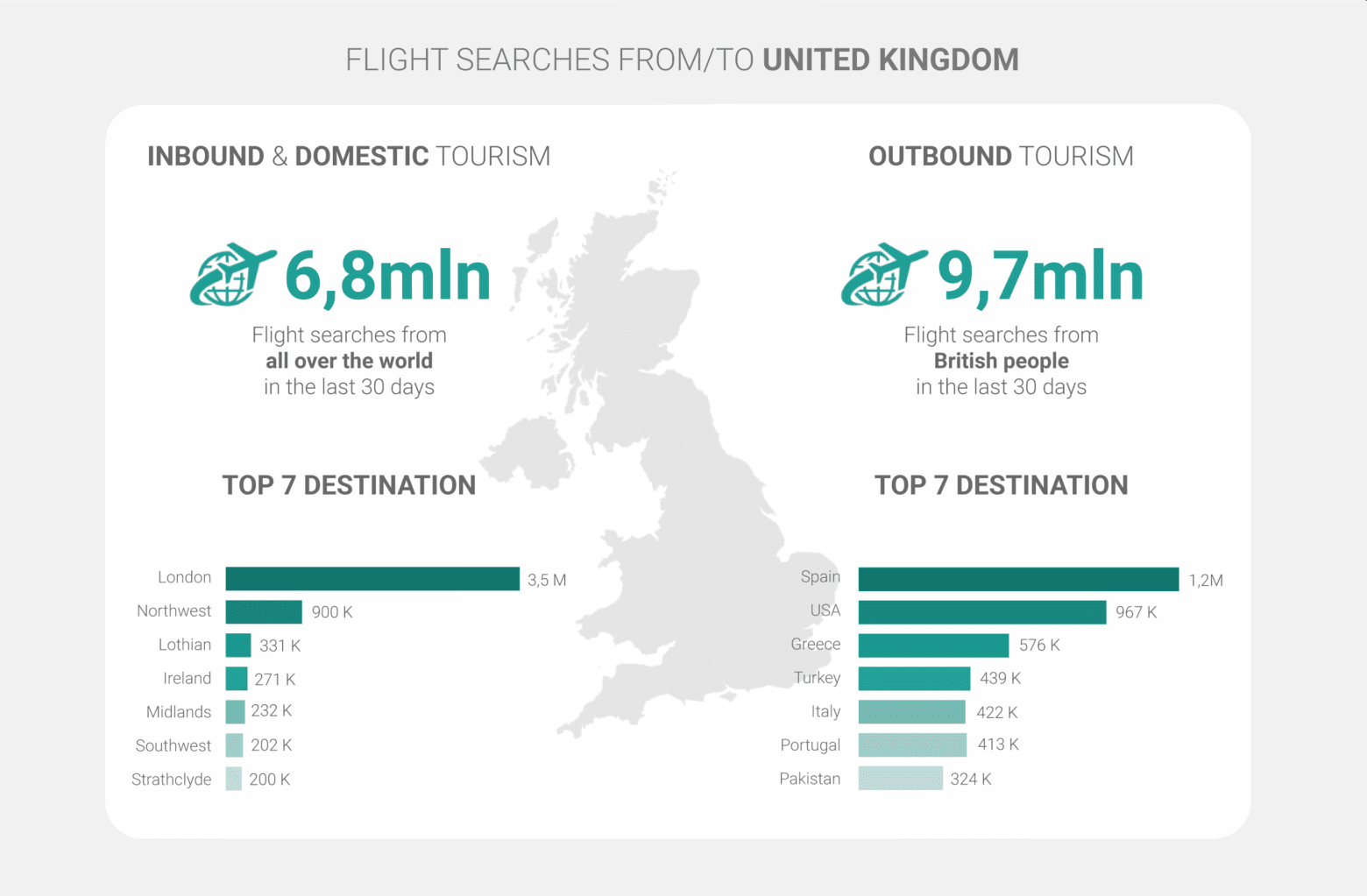After months of hard lockdown, the roadmap for the easing restrictions (which began in March) is slowly bringing the United Kingdom back to “normality;” the reopening of pubs, restaurants, gyms and hairdressers has brought excitement and vitality back to the British people and has rekindled the hope for the return to “regular” life in the near future.
Tourism has also been affected by this wave of positivity but, at the moment, restrictions on travel and mobility are still high: foreign travel is blocked until at least May 17 and English, Scottish and Welsh people can only travel within the UK, with the exception of Northern Ireland, where only essential travel is allowed. In addition, accommodation is still severely limited. In England, hotels, B&Bs and hostels are still closed, making it possible to only stay in independent accommodation (i.e. vacation rentals, RVs, etc.). In Wales, only facilities that can guarantee private toilets and open-air facilities, and which do not have shared accommodation and communal areas, are open. In Scotland, are only open for cohabiting families, as accommodation with relatives or friends is discouraged.
THE INBOUND TOURISM. As such, the UK’s watchword is still ‘caution’; however, according to flight search data, between April 2-May 2), travellers worldwide have searched for 5.2 million flights to the UK. Interestingly, UK travellers, have searched for only 1.6 million flights, preferring private transport for internal travel.
The most searched destination is London with 3.5 million searches (54% of the total), but there is also a strong interest in the North West, especially Manchester (915,00 searches) and Liverpool (73,000 searches) airports.
Although much of the interest is concentrated in the centre and south of the country, travellers are also expressing strong travel intentions for destinations such as Edinburgh (331,000 searches), Belfast (231,000 searches) and Glasgow (195,000 searches).
The trend, however, has remained consistent, with the total average daily variation being -1%: foreign travellers, who account for 76% of users, have a variation of -2%.
THE OUTBOUND TOURISM. In the meantime, as the summer season approaches, the British prefer to search for flights to international destinations; while waiting for the start of the third phase of the easing of the restrictions, which would allow travel abroad from May 17, the British have begun to plan their holidays. As many as 9.7 million flights have been searched in the last month, due to the policies that many tourist destinations are implementing allowing the visitation of vaccinated tourists. With a clear guide for the re-start of travel,
The most searched destinations by British people are the Mediterranean countries: Spain, with 1.2 million searches is in first place, though interest is especially great in the Balearic and Canary archipelagos. After the United States in second place with 967,000 searches, follows Greece with 576,000 searches, Turkey with 439,000, Italy with 422,000 and, Portugal with 413,000. The growth trends are positive: searches for Spain are growing by 4% on average every day, as are those for Greece (3.9%); Turkey is more stable, with a growth of 1.1%, while Italy and Portugal are growing by 3.9% and 6.0% respectively.
It is important to note that this ranking could undergo substantial changes in the coming weeks, due to the finalization of the traffic light system, which will rank destinations according to risk levels – green, amber and red – in order to establish the quarantine rules for returning to the UK. This will allow British people to better understand which countries they can travel to without quarantine this summer, so it is highly likely that travellers’ interest will shift to countries on the ‘green list’. Italy, presumably, will not be on this list and could lose the British market due to the current number of infections in the country; France and Turkey are also at risk.
FOCUS ON SPAIN: Spain has always been a favourite destinations for British tourists, so much so that after the announcement of the British Government’s plan to ease restrictions, there was a surge in searches for the peninsula. The majority of searches in the last thirty days are for flights departing in May with 26.8%, while there are 17.5% for June, 14.2% for July and 11.9% for August. The majority of searches are done by single users (68% of the total), while searches done by couples account for 22%, families account for 8% and groups of more than six people account for 1% of the total flight searches. Singles seem to prefer the months of May and June, while couples and families prefer the month of August.
In particular, peaks were recorded for the weekends following 17 May; for the weekend of 21-23 May, there were 35,000 searches, more than double the number of the previous weekend; and for the weekend of 28-30 May, there were 48,000 searches (). In the other summer months, searches continue to be stable, without any preference for one month in particular and are still primarily for weekend trips.
About Destination
Destination is a market intelligence project created by Lybra – developers of the most complete, machine learning, data-centric Revenue Management System (RMS) available on the market – to share real-time, region-specific statistics, information and trends in the world of tourism.
Every day, Lybra analyzes millions of datasets – data collected from thousands of hotels’ PMS and flight search data from a leading metasearch booking engine – to help hoteliers “look ahead to better understand the present;” in other words, Lybra helps hoteliers understand the upcoming demand for their destination and gives them the revenue management tools and actionable insights necessary, to maximize bookings and revenue.
The aim of Destination is to give hoteliers and DMOs a more expansive view of tourism news and trends in different regions around the world. Destination produces weekly Travel Demand Reports, which share tourism developments for a specific country/region and analyze how the region’s travel news has impacted tourist demand. Follow Destination on LinkedIn to gain access to the upcoming Travel Demand Reports, which are published every Tuesday.










